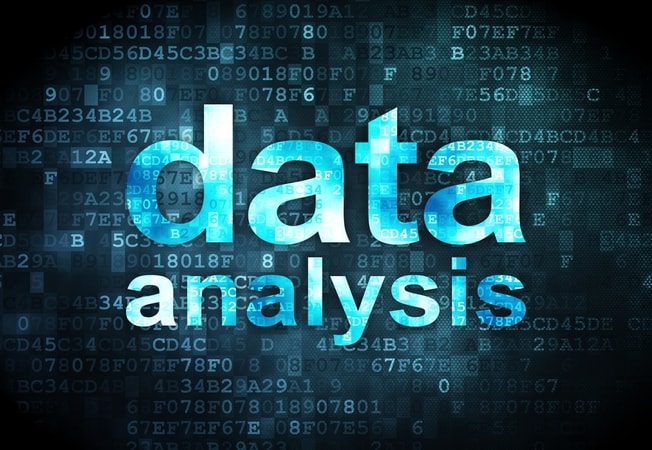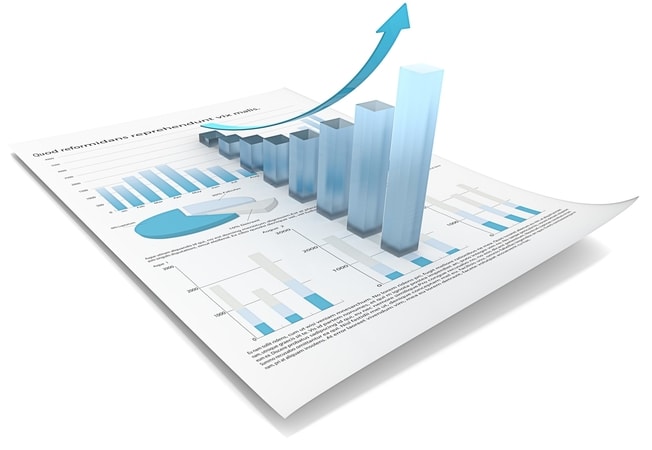Getting Top-Rated Thesis Data Analysis Help: Qualitative and Quantitative Analysis
Completing a thesis successfully may be challenging to some people due to the complexity of the research process and the voluminous nature of data collected to answer specific questions; hence, students may seek to hire experienced experts for professional help with thesis data analysis. Both qualitative and quantitative analysis of data entails reducing large chunks of data into manageable pieces of information, processing, and interpreting them to draw meaningful conclusions.
Our company provides customized top-rated data analysis help for scholars and researchers to successfully complete their research papers, capstone projects, theses, and dissertations. We offer professional assistance to organize, summarize, categorize, reduce, and analyze data to find patterns, themes, and meanings with regard to specific research questions through the application of deductive and inductive logic. We provide statistical analysis for quantitative data and apply logical techniques to reduce qualitative information into meaningful insights. This article contains some of the factors we consider when providing top-rated thesis data analysis services.

Considerations When Conducting Thesis Data Analysis
The process of analyzing data in research entails the choice and application of exact statistical analysis or logical techniques to make sense of raw data. A thesis statistics consultant helps students through the analysis process using logical and analytical reasoning to discover trends, patterns, themes, or relationships. Our data analysts systematically apply logical and statistical techniques in the description of the data scope, structural modeling, condensation, visualization, and evaluation to draw meaningful conclusions depending on the logic of inquiry. Some of the factors we consider when hired to help to conduct data analysis for a thesis include:
1. Type of data collected: Qualitative or Quantitative
Before commencing the data analysis process, our statisticians ensure they examine the nature and types of data presented by the client for analysis. The primary types of data include:
- Qualitative data: data collected through focus groups, interviews, and surveys, among other qualitative methods, and presented in the form of descriptions and words.
- Quantitative data: data expressed in numerical figures that can be categorized, grouped, calculated, ranked, and measured using statistical analysis methods.
- Categorical data: which is presented in groups.
After understanding the type of data to be analyzed, we establish the most appropriate methods and approaches to process and break them down to achieve research objectives.
2. The research questions, objectives, or hypotheses
Whether conducting logical or statistical analyses, it is fundamental to understand the motive behind the data analysis process when writing a thesis or a research project. We provide statistical consulting and logical analysis of data to draw conclusions and unbiased insights while taking into account the types of questions to be answered and objectives to be achieved.
3. Relevance of the collected data to research questions or hypotheses
When offering help with thesis data analysis, we evaluate the data to be analyzed against the original objectives of the research. We consider data that are appropriate and relevant to the aims and objectives the client wishes to accomplish through the research study. There has to be academic reasoning behind the selection and analysis of data.
4. Type of data analysis required to answer research questions and achieve specific objectives
The approach to conducting thesis data analysis should be focused on answering the immediate research questions, and theses stated prior. We maintain a clear focus on the originally stated hypothesis when choosing the type of analysis to conduct to ensure:
- Alignment with the research design, research methods, and sampling techniques that were set to test such hypotheses.
- Agreement with the theoretical framework presented through the hypothesis/research questions.
- No contradiction with the ethical approval obtained for the study.
A research question/hypothesis can be answered/tested by analyzing data through qualitative or quantitative methods depending on whether the logic of inquiry was deductive or inductive in nature.
a). Qualitative data analysis using NVivo or MAXQDA
Qualitative data, comprised of words, images, descriptions, symbols, and objects, can be analyzed through methods such as:
- Content analysis.
- Discourse analysis.
- Thematic analysis.
- Narrative analysis.
- Grounded theory.
These methods help in deriving meaningful insights from non-numerical data to achieve specific research objectives. Our experts normally use NVivo or MAXQDA when offering qualitative data analysis services.
b). Quantitative data analysis
Quantitative analysis methods break down numerical data through the application of different statistical software packages, techniques, and tests. Before analyzing quantitative data, each professional statistician for hire must ensure that the data is validated, edited, appropriately coded, and in the format acceptable to the statistical software to be used. In our thesis statistics help, we ensure the most appropriate techniques are used to break down numerical data into meaningful insights. Both descriptive and inferential statistics are used depending on the nature of the research question being answered and the objectives to be achieved in the study.
- Descriptive statistics
We use descriptive statistics to summarize data and visualize it to identify relevant trends, missing values, outliers, or any other issues that may affect the validity of the analysis results. Such statistics include measures of central tendency, distribution, position, and dispersion.
- Inferential statistics
Inferential statistics can be used to make generalizations or predictions based on a data sample, test hypotheses, or estimate particular population parameters. Some of the factors we consider to choose the most appropriate statistical test to run on data include:
a). Research methods used in conducting a quantitative study
Quantitative research methods may be correlational, experimental, quasi-experimental, or descriptive. The suitability of the data collection methods used can be evaluated based on whether the researcher intended to summarize the variables of the study, determine relationships between the variables, or systematically find out whether a cause-and-effect relationship exists between defined variables.
b). The research questions/hypotheses and design
Cleary-defined research questions/hypotheses explain the types of variables to be measured and the methods to be used in making such measurements. By understanding the aims and objectives of the researcher, we determine the type of statistical test that is most appropriate to run on the data to achieve the specific objectives depending on the type and nature of the collected data. We provide top-rated thesis data analysis services customized to meet the unique needs of individual clients.
c). The nature and type of the data collected
It is fundamental to understand the type and nature of data collected by the doctoral student before conducting statistical analyses to determine the best test to run on it. We identify the characteristics of each data set presented for analysis by clients to ensure its type, nature, and variables attain the basic assumptions of the statistical test deemed appropriate for it.
d). Use of the relevant statistical software packages such as SPSS, R, and STATA
When seeking help to conduct data analysis for a thesis, one ought to hire a statistician with the practical skills and prowess in data entry and the relevant functions or buttons to press on particular statistical packages to analyze data correctly and run the required tests. Our experts possess extensive experience in statistical analysis of data using different software packages. Thus, clients are assured of comprehensive and quality work. We use relevant buttons/commands to:
- Test for the specific assumptions underlying the chosen statistical test.
- Detect and fix missing data and outliers in the given data set.
- Determine the possibility of making corrections if the data violates the statistical assumptions of the intended test.
- Determine whether to analyze data using various numerical or graphical techniques.
Our statisticians offer great quality statistical analysis services to ensure clients successfully complete and submit their theses within the specified academic timelines and score excellent grades after assessment by the relevant target audiences.
e). Potential data-analysis problems and how they can be solved
Various issues may arise during data analysis, such as:
- Collection of unequal data when comparing group differences.
- Inadequate sample size.
- Inability to solve the violation of the statistical assumptions of specific tests.
- Lack of certainty on the best way to resolve issues on missing data and outliers.
We conduct exploratory data analysis (EDA) to identify any issues and recommend the most appropriate ways to handle them so that they will not affect the validity of the results. Anyone looking for a professional statistician for hire can visit our company website for the best professionals who will help throughout the thesis writing process. We possess vast experience in statistical analysis of data. Hence, clients are assured of achieving their research goals and success in their thesis writing and submission to the relevant audience.

5. The link between the analysis results and the reviewed literature
After analyzing thesis data for the client, we relate the results to the main themes, gaps, or debates identified when reviewing the literature. We help the client in relating the research findings to the literature review, identifying the areas of differences or agreements with regard to the research question being answered or the hypothesis being tested.
6. Technical accuracy of the analysis chapter write up
Our statisticians present the chapter in a clear, concise, and coherent manner to help students understand their data and the results and their target audiences to follow through with each step of the analysis process. We ensure that the write-up is flawless in all aspects of grammar and usage and the mechanics of style to ensure clarity and flow of the scholarly conversations. The document is formatted according to the guidelines of the client's preferred style guide.
Carefully considering these factors enable our expert data analysts to provide the best help with thesis data analysis at an affordable cost. We are readily available and accessible 24/7 for anyone seeking logical or statistical analysis of data. Every service from our company is customizable depending on the client's needs, the nature of the inquiry, and the research objectives to be achieved.





